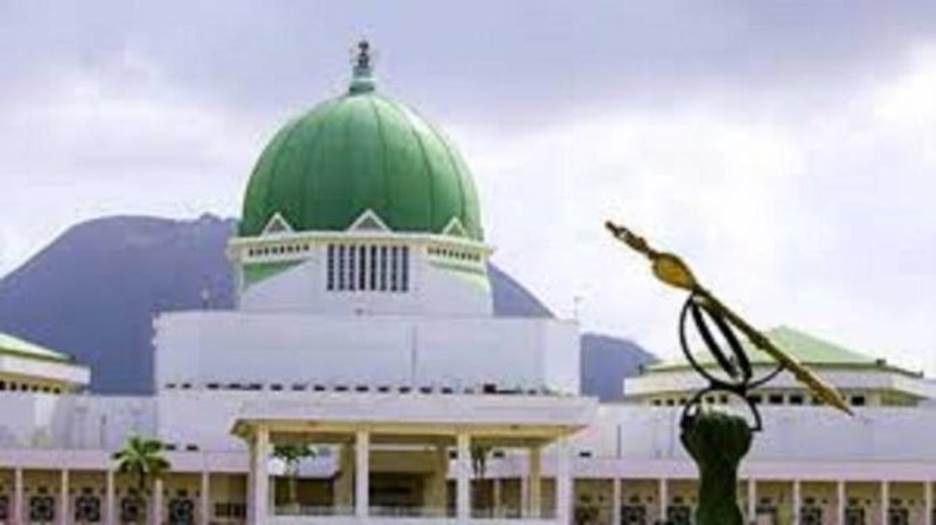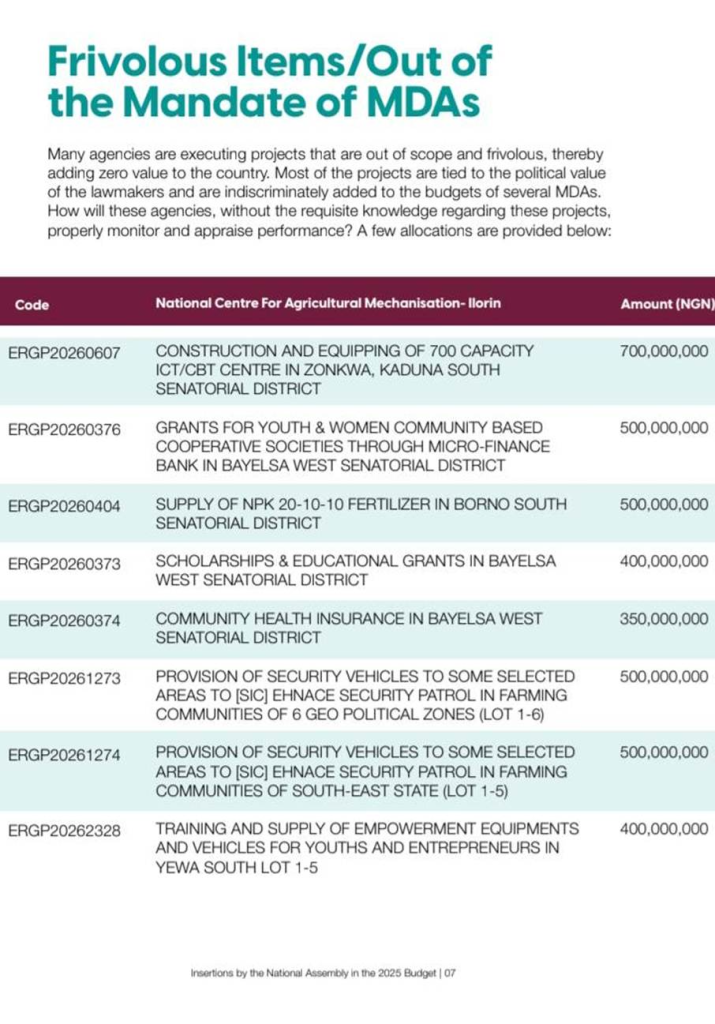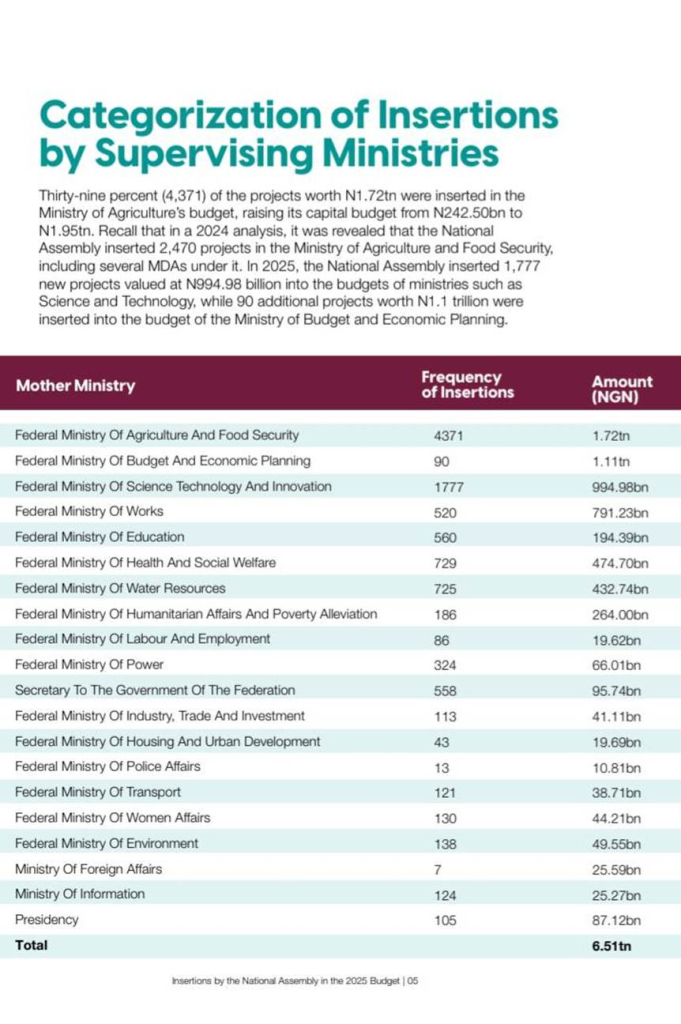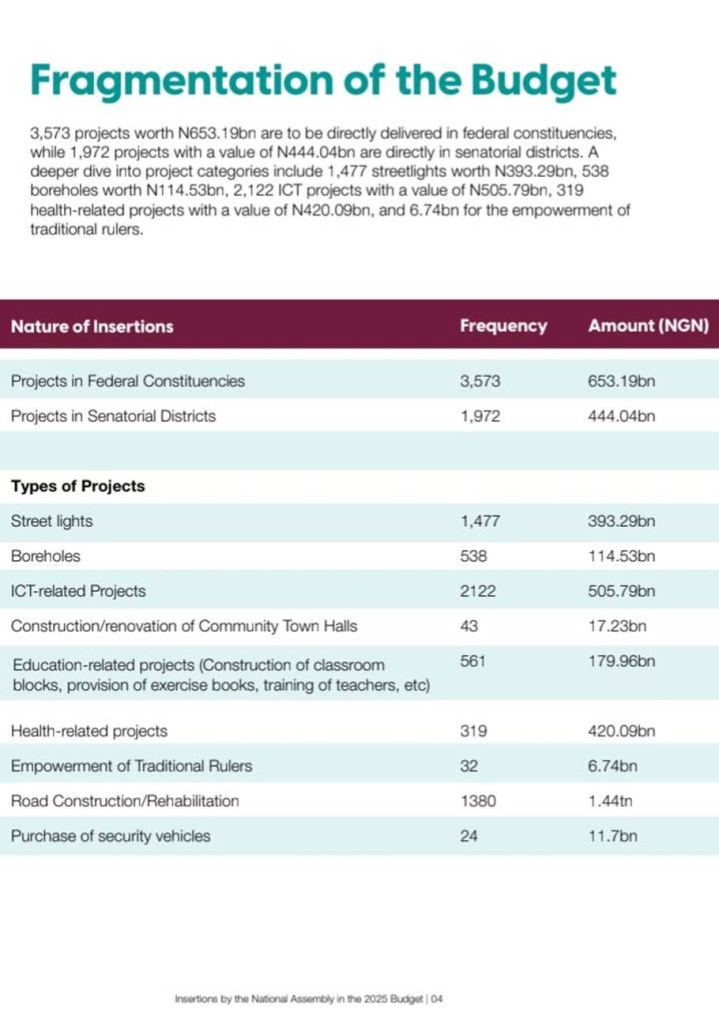
National Assembly Complex
A CIVIC organisation promoting transparency in Nigeria’s public finance, BudgIT, said it uncovered 11,122 projects valued at N6.93 trillion inserted by the National Assembly into the 2025 federal budget.
The group, in its expose published by the International Centre For Investigative Reporting, (ICIR) on Wednesday, alleged that these insertions, lacking clear justification, reflected a pattern of fiscal abuse driven by political interests rather than national development priorities.
The 2025 budget process began with President Bola Tinubu presenting a N49.7 trillion proposal to the National Assembly in December 2024.
Citing additional revenue from agencies such as the Federal Inland Revenue Service and the Nigeria Customs Service, Tinubu later requested an increase in the budget to N54.2 trillion in February 2025.
The National Assembly approved N54.99 trillion as the reviewed budget, adding N700 billion to the president’s revised proposal.
The 2025 Appropriation Act represents a 99.96 per cent increase from the 2024 Budget of N27.5 trillion.
A breakdown of the budget showed N3.645 trillion for statutory transfers, N14.317 trillion for debt servicing, N13.64 trillion for recurrent expenditure, and N23.963 trillion capital expenditure (development fund), with fiscal deficit put at N13.08 trillion


Christened ‘Budget of Restoration: Securing Peace, Rebuilding Prosperity,’ Tinubu said the 2025 budget sought to consolidate the key policies his administration had instituted to restructure Nigeria’s economy.
The budget also sought to boost human capital development, increase the volume of trade and investments, bolster oil and gas production, get the manufacturing sector humming, and ultimately increase the competitiveness of the country’s economy, noted the president.
However, BudgIT’s analysis indicated that funding allocations for 238 projects out of the over 11,000 projects inserted by the NASS exceeded N5 billion and totalled N2.29 trillion without clear justification.
It also added that 984 projects worth N1.71 trillion and another 1,119 projects ranging between N500 million and N1 billion (totalling N641.38 billion) were added by the NASS arbitrarily.
The organisation argued that “these insertions, far from promoting development, appear tailored to satisfy narrow political interests and personal gains rather than the citizens’ interests.”
According to BudgIT findings, 3,573 projects valued at N653.19 billion were assigned to federal constituencies, while 1,972 projects worth N444.04 billion were allocated to senatorial districts.

“Categorically, some of the most glaring anomalies include: 1,477 streetlight projects worth N393.29 billion; 538 boreholes totalling N114.53 billion; 2, 122 ICT projects valued at N505.79 billion; and N6.74 billion earmarked for ‘empowerment of traditional rulers,’” the report noted.
It further said that the Ministry of Agriculture experienced significant budget inflation, with 4,371 projects worth N1.72 trillion, increasing its capital allocation from N242.5 billion to N1.95 trillion.

Other ministries, including Science and Technology and Budget and Economic Planning, also saw substantial increases due to these insertions.
BudgIT highlighted instances where agencies without the capacity to execute certain projects were assigned substantial funds.
For instance, the Federal Cooperative College in Oji River State, primarily a training institution, was allocated N3 billion for utility vehicles, N1.5 billion for rural electrification in Rivers State, and N1 billion for solar streetlights in Enugu State.
“Despite these findings, the Presidency has remained conspicuously silent. Recall that in the third and fourth quarters of 2024, BudgiT launched the ‘The Budget is a Mess’ campaign to bring these issues to light. We submitted formal letters outlining our findings to the Presidency, the Budget Office, and the National Assembly. While these letters were acknowledged, no response was received from any of the institutions, and not a single institution has taken responsibility for the anomalies.
“Even more concerning is the silence from the Presidency – silence which, in the face of overwhelming evidence, amounts to complicity,” BudgIT added. (ICIR)